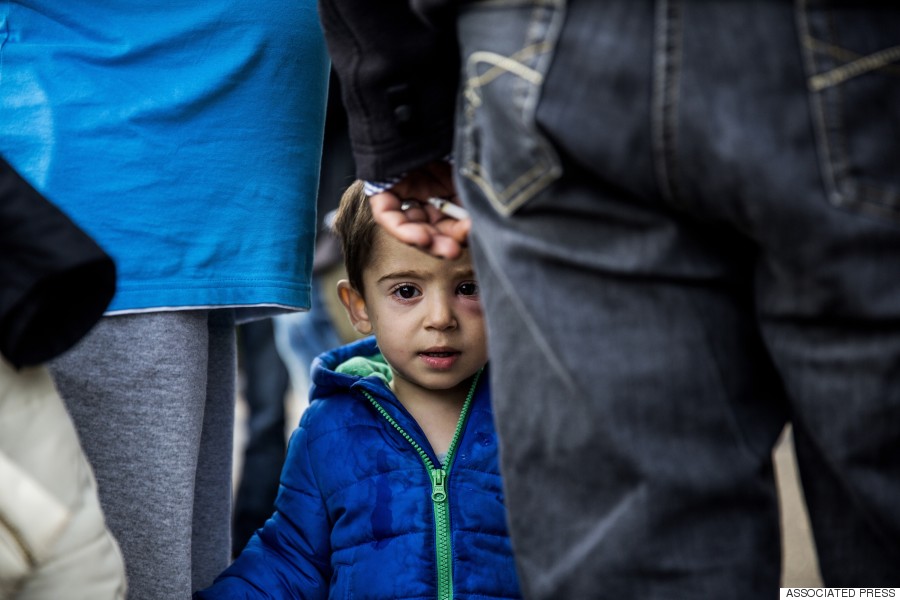
COPENHAGEN, Denmark -- Prior to the cartoon crisis of 2005-6, which arose after a Danish newspaper published a handful of cartoons depicting the Prophet Muhammad, Denmark did not have strong national brand recognition in the Middle East and North Africa. During numerous research trips to the region before the crisis I often heard questions along the lines of, "Denmark? Isn't that the capital of Oslo?"
Egyptians, for instance, jokingly used to refer to Denmark as "the country of cheese" (balad al-gibna), a reference to Danish dairy products exported to the region. Or they would take amusement from referring to a popular slapstick comedy starring a prominent Egyptian actor, Adel Imam, in which the plot is built around a Danish blonde in skimpy clothes. And there were soccer fans (quite a lot) who could name more famous Danish or Arab soccer players than I even knew. Beyond that, everything turned a bit hazy.
The cartoon crisis changed that. It instantly hurled Denmark into the Arab and Middle Eastern collective consciousness and tarnished Denmark with a reputation as a frontrunner in European xenophobia and Islamophobia.
Whether we find it fair or not, the dominant narrative about Denmark in the Middle East remains forcefully impacted by this experience. Danish businessmen know that and so do the Danish intelligence and foreign services. Over the past 10 years each has worked to repair and rebuild what Denmark's image lost in 2006. In the foreign service, for instance, the newly established regional reform program that I headed in Cairo from 2008 through 2011 had to scale down its reform agenda and instead focus on public diplomacy and "dialogue" activities.
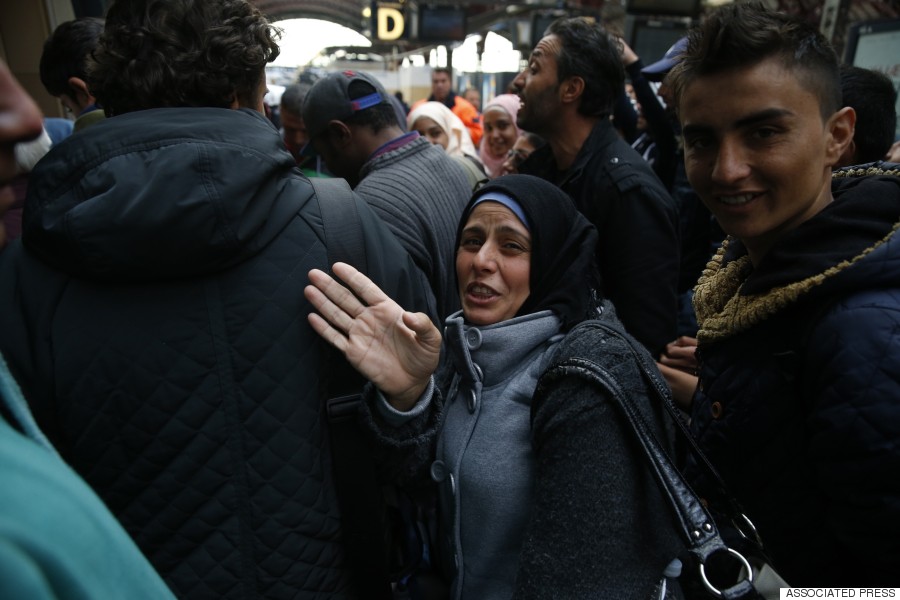
Syrian migrants arrive at the main train station in Copenhagen in September, 2015. (Finn Frandsen/POLFOTO via AP)
The cartoon crisis not only created a branding challenge for Denmark in the Middle East; it also made the country weaker in the eyes of countries it normally compares itself with. The association with European xenophobia and Islamophobia had grave consequences for Denmark's capacity for international diplomacy and its exposure to international terrorism. Every incoming Danish government since 2006 has been forced to handle this structural weakness through the diplomatic, trade and security agencies.
But the current government has utterly failed to do this. Out of an eagerness to dissuade Syrian and other refugees to seek asylum in Denmark, the government, since it came to power about seven months ago, deliberately and proactively built an image of Denmark as a leader in European anti-immigration policies. It has done so by placing dissuasive ads in Lebanese media, by challenging the applicability of international conventions on the regulation of refugees and, most recently, by passing a highly controversial and symbolic anti-immigration law. In Denmark and in other countries, the success of this type of negative branding has generated tough criticism and split the electorate, sending the parties in the social democratic opposition that supported the government into an almost historically unprecedented free fall.
But that's not all. Besides the almost unbearable human costs that the new law will impose on legal asylum seekers in Denmark -- in particular the separation of parents and children for up to three years and the confiscation of personal valuables -- the government has neglected three key insights that were bitterly acquired during the cartoon crisis in 2006 but appear now to have been forgotten.
Small state, big attitude
A key lesson from the cartoon crisis was that Denmark is and always will be a small state. No matter how much the Americans love our "scando style," the cartoon crisis emphatically showed that the close relations with Washington built by successive governments could not be translated into deterrence in international politics. The cartoon crisis showed us that if we stick our noses into the wrong places and make diplomatic missteps, we may easily become an object of other more powerful states' domestic and international policies.
Contrary to what is often argued in Danish media, it was neither the printing of the cartoons as such, nor the dumb trip by a group of ill-prepared Danish imams to several countries in the Middle East that instigated the crisis. The crisis only developed when a host of political actors in the Middle East and beyond picked up on a strong but almost cost-free case for popular mobilization that the Danish government had provided them on a silver platter.
The then-prime minister and later head of NATO, Anders Fogh Rasmussen, refused to meet a group of ambassadors who arrived to express a strong worry over what they perceived as increasing Islamophobia in the Danish press and media, with the cartoons of Prophet Muhammed as the most recent case. From there, the conflict took a new and international dimension.
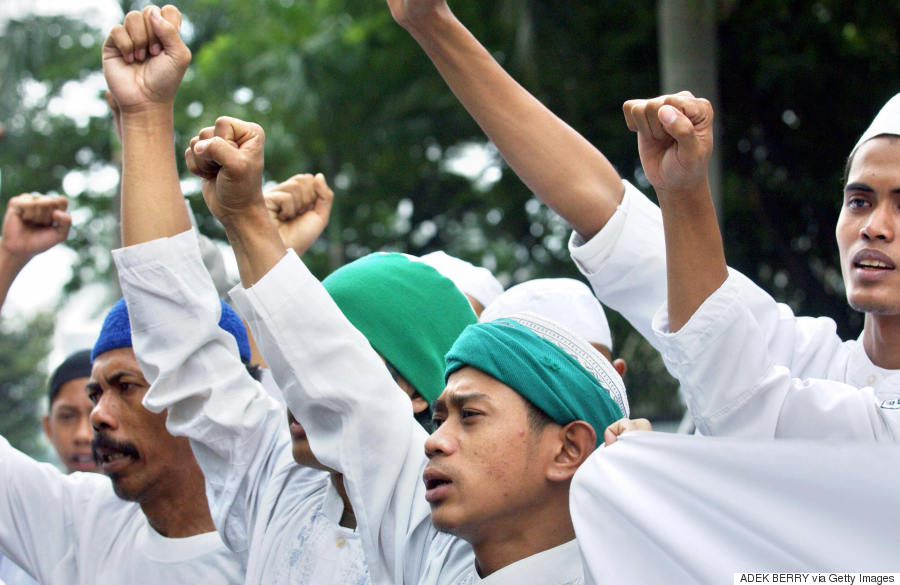
Angry protesters shout anti-Denmark slogans in front of the Danish embassy in Jakarta, Indonesia, in 2006. (ADEK BERRY/AFP/Getty Images)
It was this diplomatic faux pas, based on a tunnel view of the Danish domestic scene, that was grasped by political leaders and opinion-makers in the state-controlled or government-supportive press in the Middle East. How could the leader of a small European state decline to even speak to ambassadors representing a range of Middle Eastern great powers?
From that point onward the crisis snowballed. Middle Eastern regimes like Egypt, Iran and Syria pushed the issue, orchestrating campaigns and street protests. It was picked up by the domestic opposition in a number of countries in the region, further complicating Denmark's attempts at containing the issue. It was picked up by Al Qaeda, adding to the growing risks of political violence and terrorism in the wake of the Danish military expeditions in Iraq and Afghanistan. And it was picked up by Middle Eastern consumers, leading to one of the worst-ever cases of consumer boycott and damage to Danish business interests in the Middle East.
It did not matter that the prime minister could not have intervened to stop the cartoons even if he wanted. It did not matter that equally presumptuous French cartoons were printed in other European newspapers. What mattered was that the case was powerfully mobilizing the populace. And that was almost risk-free, from a Middle Eastern perspective, since it involved only a European micro-power. It is, after all, a whole lot easier to organize and run an international conflict with Denmark than doing so with big powers like France, Germany or the U.S.
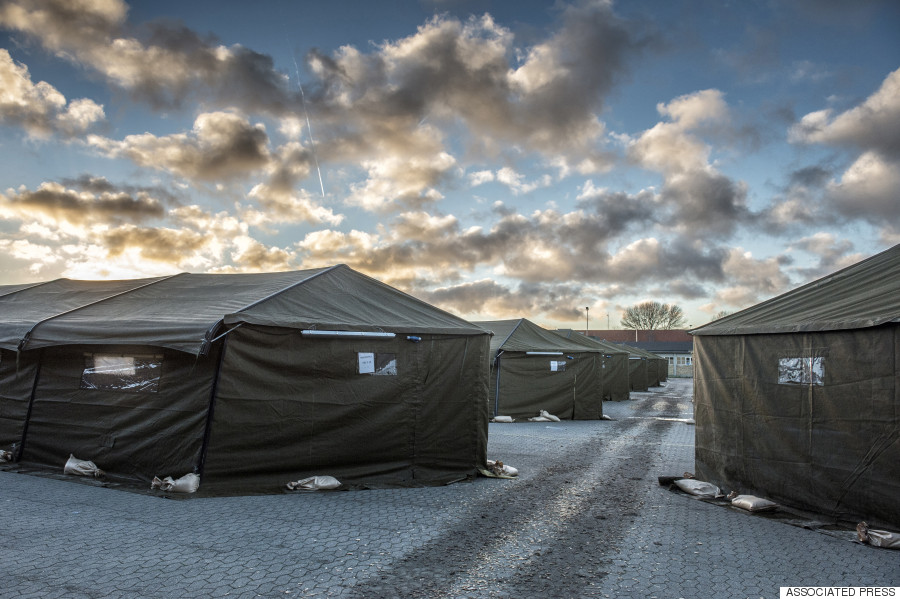
A migrant camp in Vordingborg, south of Copenhagen. (Per Rasmussen/Polfoto via AP)
And now, in the current refugee crisis, the Danish government neglected all the insights and lessons it could have learned from the cartoon crisis, from the limits of the country's deterrence abilities to the deep connectedness between Danish domestic politics and the broader world around us. Until now, the refugee crisis has had a broader European and Western dimension. Sadly, it may not remain so. Although a scenario along the precise lines of the cartoon crisis seems unlikely, the issue may reveal a deeper resonance with Middle Eastern politics, security and business than what we have seen so far.
The probability of this stems form the continued presence of key conditions in Middle Eastern power politics that, a decade ago, drove the cartoon crisis. Regimes remain weak and illegitimate. Jihadists are still at war with Denmark and the West. And businesses still need to appear ethical.
Ten years after the cartoon crisis, Middle Eastern regimes are still dealing with chronically low popular support. A key driver in the cartoon crisis of 2006 was the need for weak autocratic regimes to mobilize popular support internally -- or at least stop their domestic rivals from doing so first. The cartoons in that case were an issue that was obvious enough to garner support and mobilize people. Through smear campaigns and dissociation, the regimes could frame themselves as protectors of the prophet, of Islam and of a good cause.
To many, this appeared wildly hypocritical. Muslims are treated worse in the Middle East than they ever have been in Denmark. But that was not the point back then. And neither is it today. During a recent U.N. Human Rights Council hearing, envoys from a range of Middle Eastern great powers, including Saudi Arabia and Iran, chastised Denmark for its hateful debate about migrants and foreigners. It is hard to believe that this was motivated by a genuine urge to protect human rights and the rights of Muslim migrants and refugees in Denmark.
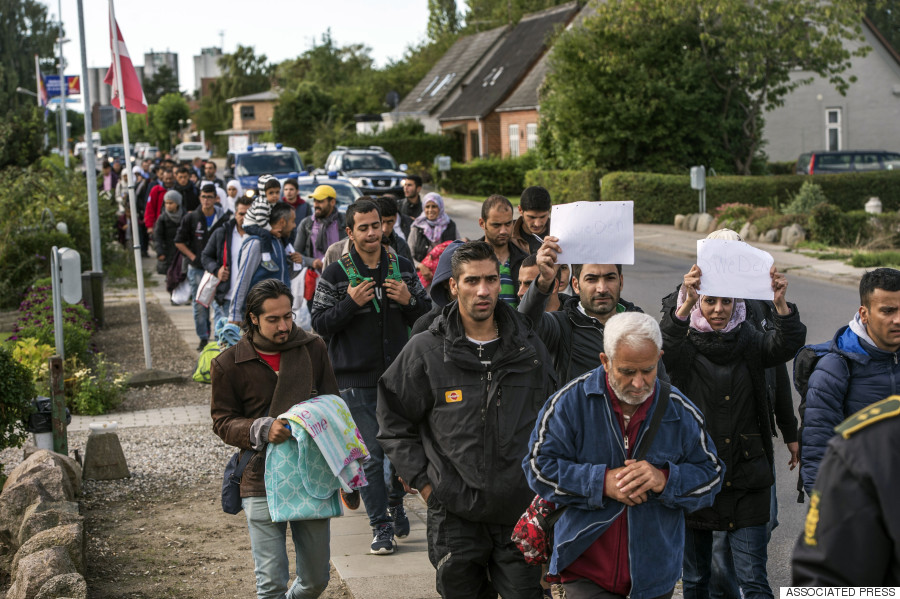
Middle Eastern migrants walking from southern Denmark towards Sweden in September, 2015. (AP Photo/POLFOTO, Per Rasmussen)
Rather, it seems likely that such criticism arose because the publicity serves political agendas. Internally, Middle Eastern regimes seek to handle their scant political legitimacy by posing as guardians of public morality. Just like it was back in 2006. Hypocritical, yes. But that's politics.
Middle Eastern regimes are active in ongoing power feuds with their neighbors and a quest for regional dominance, a dynamic that is richly illustrated by the battle between Saudi Arabia and Iran. These regimes need to position themselves to gain political advantage and domestic support -- or, at a minimum, ensure that their competitors cannot.
The decision by the Danish government to send a strong message to potential asylum seekers, combined with the existing narrative about xenophobia and Islamophobia, neglects the threats this may generate for Denmark itself. The display at that UNHRC hearing -- where Egypt, Iran and Saudi Arabia, among others, targeted Denmark for its treatment of migrants and refugees -- suggests that at least some Middle Eastern regimes may be eyeing an opportunity to claim political legitimacy by pointing fingers at Denmark.
An ongoing battle against terrorism
Another key lesson from the cartoon crisis was that stories about Danish xenophobia served jihadist mobilization. Since 2006 jihadists in the Middle East, and in particular Al Qaeda, have had Denmark on their target list. As a symbolic representative for European Islamophobia in the new mainstream Arab popular perception, jihadists saw Denmark as a particularly interesting target for their global jihad, and for years after the crisis in 2006, several Danish journalists, editors and cartoonists were forced to live with 24/7 police protection. Some experienced assassination attempts. While the threat from global terrorism towards Denmark was believed to have dropped gradually during the last decade -- a development that helped by the withdrawal of Danish troops from Iraq and Afghanistan -- the threat has reemerged recently.
Less than a year ago, a Danish "lone wolf" terrorist who had shown sympathies for the so-called Islamic State attacked and killed several people in central Copenhagen. Much of the propaganda emerging from ISIS addresses real and imagined grievances of the Muslim minority groups in Europe.
As with broader European terrorist threats, the renewed alert in Denmark seems intimately linked with Denmark's participation in the international military coalition against so-called Islamic State in Syria -- a factor that may have increased further by the recent deployment of ground troops to Mali in support of the stabilization of areas in the northern part of the country.
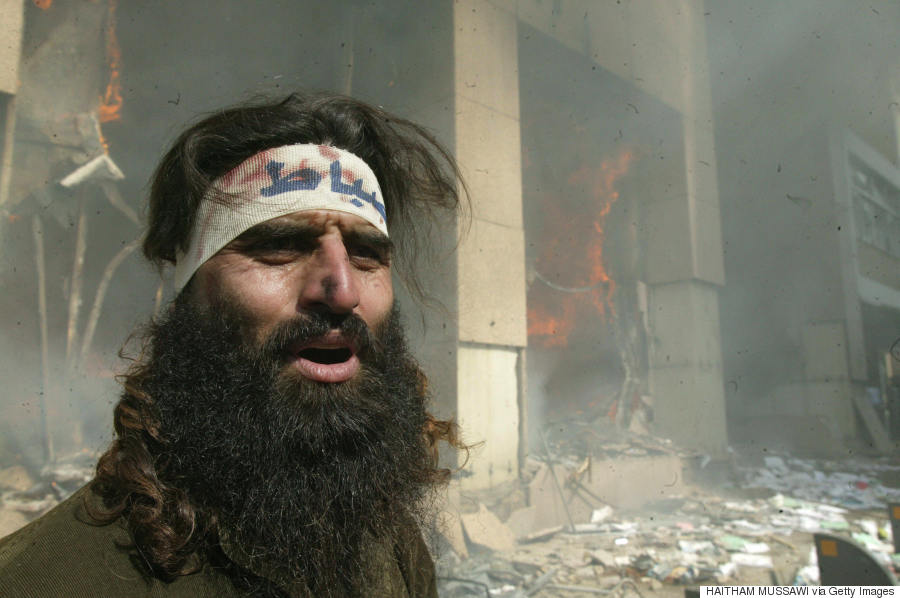
A man outside the burning Danish consulate in Beirut during a violent demonstration against the Muhammad cartoons in 2006. (HAITHAM MUSSAWI/AFP/Getty Images)
There is, of course, nothing indicating that Middle Eastern jihadist groups have the plight of refugees particularly close to heart. ISIS, from which a great deal of refugees are fleeing, continues to threaten all who flee its territory.
But the story about the Danish government's proactive struggle to limit the influx of asylum seekers from Muslim majority countries plays into the deeper narrative inherited from the cartoon crisis, a narrative that picks out Denmark as the most Islamophobic of European countries. This was the narrative underpinning the jihadi mobilization in 2006 and onwards. There is a fair reason to fear that Denmark's and Europe's attempts to block asylum seekers from entering Europe will be interpreted as yet another chapter in the imperialist and colonialist policies that jihadists claim Europe in enacting. In that worldview it is only to be expected that refugees from the Middle East will meet refusal rather than welcome -- that universal rights are not universal at all, only applicable to whites, Christians or Europeans.
The Danish government is thus running a great risk of increasing the threats of terrorism in Denmark. By actively seeking to establish a bad standing among potential asylum seekers, the government deliberately neglects lessons from 2006 -- bad publicity for Denmark may be good mobilization material for global jihadists. From a perspective of security policy, the government's proactive branding of itself as a bad country for Middle Eastern migrants and refugees rather looks like a harmful disservice.
Business and ethics
Lastly, the cartoon crisis taught Danish companies that Middle Eastern consumers and businessmen also purchase ethically. While businesspeople share the ability of autocrats and terrorists to look the other way as human rights are violated, the cartoon crisis also showed us that when their business is threatened, their stamina plummets. This is likely to still be the case today. And just as it was 10 years ago, Danish companies active in the Middle East still need to stand on the right side of public morals and ethical business. In the tough competition to reach Middle Eastern consumers, there is a continuous need to mobilize buyers. And in the Middle East, this happens the same way as back home in Denmark -- by businesses keeping their name morally and ethically clean.
Some of the many boycotts and other damages to Danish businesses that arose during and after the cartoon crisis certainly reflected genuine anger over the cartoons or the Danish government's handling of them back then. But some were also motivated by considerations of branding. It simply was not convenient to be associated with Denmark, a perceived Islamophobic brand.
In its effort to take a symbolic leadership position among European countries currently pushing for tighter migration policies, the Danish government has plainly neglected multiple important experiences collected during the cartoon crisis of 2006.
In the end the government's refugee policies are not just ethically questionable. They are also potentially harmful for Danish growth and for Danish diplomacy. And they may contribute to an increase in threats from jihadists in Denmark and beyond.
Earlier on WorldPost: